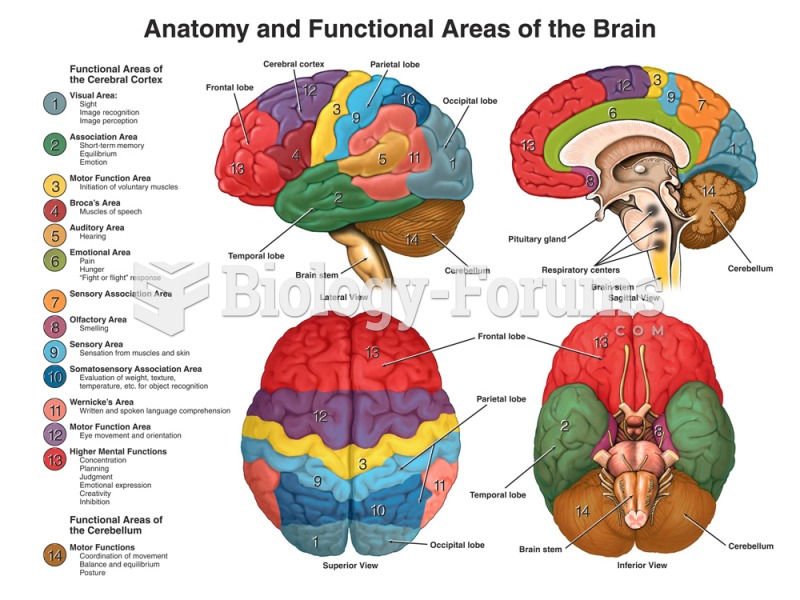|
|
|
The average human gut is home to perhaps 500 to 1,000 different species of bacteria.
The B-complex vitamins and vitamin C are not stored in the body and must be replaced each day.
Your skin wrinkles if you stay in the bathtub a long time because the outermost layer of skin (which consists of dead keratin) swells when it absorbs water. It is tightly attached to the skin below it, so it compensates for the increased area by wrinkling. This happens to the hands and feet because they have the thickest layer of dead keratin cells.
After 5 years of being diagnosed with rheumatoid arthritis, one every three patients will no longer be able to work.
You should not take more than 1,000 mg of vitamin E per day. Doses above this amount increase the risk of bleeding problems that can lead to a stroke.






